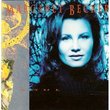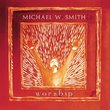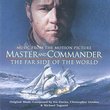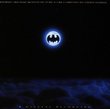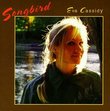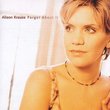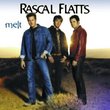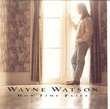| All Artists: New Zealand Symphony Orchestra Title: El Cid Members Wishing: 0 Total Copies: 0 Label: Koch Int'l Classics Original Release Date: 2/20/1996 Release Date: 2/20/1996 Album Type: Soundtrack Genres: International Music, Pop, Soundtracks Styles: Europe, Eastern Europe Number of Discs: 1 SwapaCD Credits: 1 UPCs: 099923734024, 099923734048 |
Search - New Zealand Symphony Orchestra :: El Cid
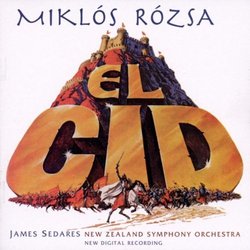 | New Zealand Symphony Orchestra El Cid Genres: International Music, Pop, Soundtracks
|
Larger Image |
CD DetailsSimilarly Requested CDs
|
CD ReviewsSuperb but then I'm prejuidiced 08/11/1999 (5 out of 5 stars) "As the Producer of this CD, most would think I'm the least qualified person to review the disc. In addition, my wife performs the finale's thundering organ solo: the dramatic moment when the gates open and the dead Cid mounted on his horse rides to his last battle. Even more so, I knew the composer. Despite having produced and edited this CD, I still love this record and this music, from the extraordinarily tender love music -memorable oboe playing by John Snow- to the choral finale (with organ), this is the music of epic from the last of the Golden Age of Hollywood composers. Rozsa endorsed James Sedares previous two recordings of his works but died the day I finished editing this recording. He would have loved it." Recording makes the most of the excellent score Goffe Torgerson | Lynnwood, Washington, USA | 04/26/2000 (5 out of 5 stars) "The composer, Miklos Rosa, describes this score as his greatest achievement. That is saying a lot, because he composed some great scores. This is an excellent recording of that achievement. Even if you are not familiar with the movie, it is enjoyable romantic music, powerful at times, and tender and peaceful at other times, but always moving, musically and emotionally. There is an excellent booklet with the CD, telling about the composer (with a list of movies he scored), the making of the movie, the history upon which the movie is based, and a commentary by Martin Scorsese.Sadly, Rosa died shortly before this was released." Great music for the epic history of Spanish "Reconquista" Juan Alberto Diaz Wiechers | Santiago Chile | 04/12/2002 (5 out of 5 stars) ""El Cid" is for me a great movie. It depicts one of the greatest episodes in Western history: the Christian "Reconquista" of Spain from the Moors, which lasted eight centuries. During this period there was a high degree of cultural intercourse, and today, for instance, the Spanish, or properly named Castilian, language, has around 12% of Arabic words, beginning with "ojalá" (May God wish it). There was religious war, of course, but also coexistence between Moslem and Christian states, and Moslem, Christian and Jew communities. Sometimes problems arouse when fanatic non-Spanish Moslem tribesmen from North Africa invaded the civilized Moslem Spanish emirates and threatened the less cultured Christian states. This motion picture is centered during one of these invasions. It talks of Don Rodrigo Díaz de Vivar, El Cid Campeador, his wife Ximena, and his relation towards the succesive Kings of Castile and León, showing him, as he was, a loyal subject who nonetheless did not hesitate to force his new king to swore on his knees to have no connection with his brother's assassination. Also a man who commanded as an independent Warlord both Christian and Moslem troops, revered by his soldiers, and named by the Moslems themselves "El Cid" (from Arabic "Sidi" or "lord"). Then come the epic aspects of the music: the Christian-Spanish and the Moslem-Spanish influences, the legend of a hero, the wonderful love theme between Doña Ximena and Don Rodrigo, all music asociated with El Cid and his campaigns, and close to the end, the Death of El Cid in Valencia, the capital of his own short-living State. But, unlike other movies, History does not end there: after his death, El Cid, tided to his horse Babieca, leads his men into his final victory. It is said that he is the only general who has won a battle after his death. And the exit music depicts quite well the passing of El Cid into legend.
In summary, the recording is wonderful. The producers, among them the late Christopher Palmer, and with the approval of the composer himself, assembled a great suite for future generations. And the orchestra and the conductor did a great job. If one day the whole original soundtrack is issued for public release, it will not overshadow this recording, because this one can be understood as a suite for concert performances, in contrast to the Soundtrack, that will present the music in other form. Both presentations of the music will surely coexist side by side in a collection." |

 Track Listings (15) - Disc #1
Track Listings (15) - Disc #1